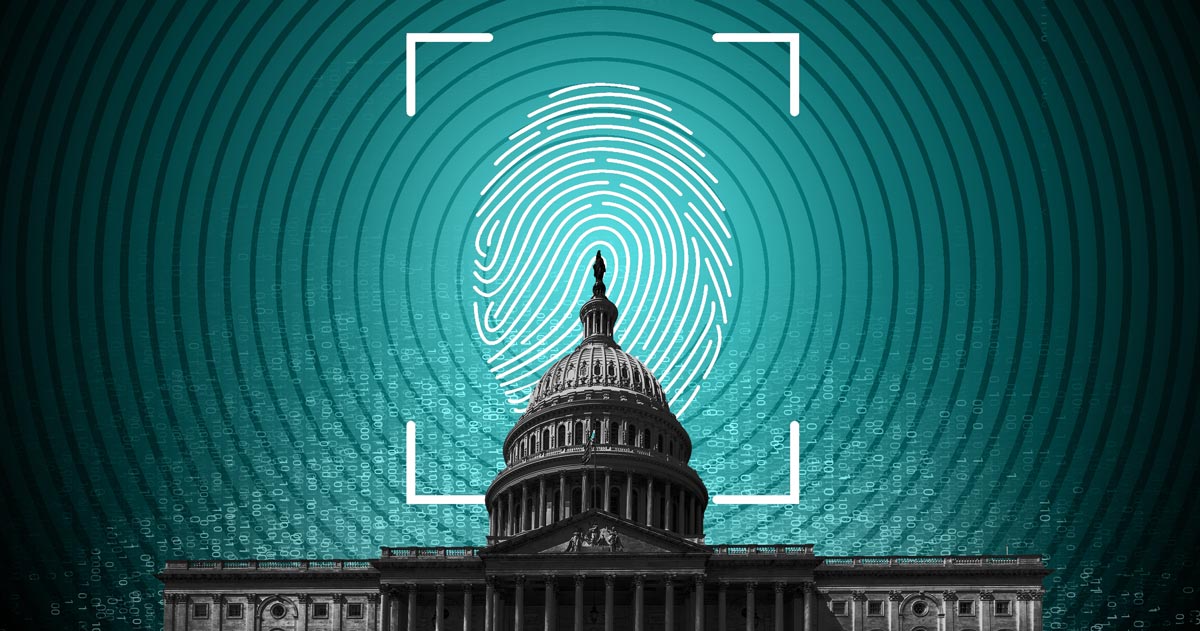
What does the new U.S. infrastructure bill mean for privacy?
Aug 12, 2021On August 10, the United States Senate passed the Infrastructure Investment and Jobs Act bill, which would allocate more than $1 trillion to the nation's infrastructure in a rare show of bipartisanship. The legislation goes beyond simple roads and rails: it contains a number of new rules that stand to affect America's approach to the Internet generally, and blockchain and crypto specifically.
The bill must still pass the House of Representatives before it can be signed into law by President Biden -- an uncertain prospect at best. But if they do take effect as written, the new guidelines are likely to have important ramifications across the digital space, not least when it comes to privacy, both on- and offline. We've taken a deep dive into the specifics of the bill to explain why and how.
What's in the bill?
The legislation includes hundreds of billions of dollars to fund improvements to the U.S.'s roads and rails, as well as other physical infrastructure. It includes provisions designed to spur the growth of clean power generation and ensure Americans have access to clean drinking water, among other goals. Much of the funding will come from increased government borrowing, which raises the specter of another debt ceiling showdown later this year.
Notably, the Act treats Internet access as an essential service, an acknowledgement of the enormous change that has taken place over the past three decades as the web has become the primary means by which many Americans -- like their counterparts around the world -- work, communicate, shop, watch TV, and more. Specifically, the bill includes a $65 billion provision to bring Internet access to rural and low-income communities around the country. It also allocates $1 billion to state and local governments to enhance cybersecurity measures.
Where privacy concerns are most salient is in the implementation of these measures. Specifically, many components of the proposed law require detailed reporting, collection of data, and tracking of people's activity. It is important to understand the potential implications of these new rules in order to adopt best practices to preserve individual privacy.
Vague language about "brokers" is raising concerns
The bill has already drawn criticism for a provision that is likely to lead to increased financial surveillance and onerous compliance standards in the blockchain space. The Act places new requirements on those it deems brokers, defined as parties "responsible for and regularly providing any service effectuating transfers of digital assets on behalf of another person." As currently written, this could apply to miners, node validators, and stakers on platforms across the crypto space. And any entity fitting this description would be obligated to collect users' names, addresses, and other pieces of personal data needed to comply with IRS reporting requirements.
The vagueness of the language has the potential to open a Pandora's box of confusion about the legality of a wide range of anonymous cryptocurrency transactions conducted on peer-to-peer networks and decentralized exchanges. Industry groups have previously stated that many such entities do not have the capacity to collect reporting data.
Further, even if the affected parties were able to collect this user data -- a highly unlikely prospect -- the obligation to do so could be a violation of fundamental privacy. The Electronic Frontier Foundation (EFF) states, for example, that "the ability to transact directly with others anonymously is fundamental to civil liberties, as financial records provide an intimate window into a person's life."
A number of senators have pushed to amend the language of the Act so that it "does not apply to individuals developing blockchain technology and wallets," but the proposed amendment failed to pass ahead of the bill's approval. Nevertheless, there appears to be significant consensus among legislators that the Act's language should not be deemed to apply to those involved in the operation of blockchain networks. Senator Rob Portman of Ohio went so far as to give a speech on the floor of the chamber to help make clear that the intent of the law does not target blockchain platforms. He also suggested that the Treasury Department could hand down further regulatory guidance confirming this interpretation.

Implications for privacy, on- and offline
Beyond its specific implications for the blockchain space, the Senate bill looks to have important ramifications for the Internet, and for individual privacy, more generally. In particular, some analysts have connected the infrastructure bill to a broader effort to strengthen financial reporting requirements. And the privacy implications of the Act expand beyond the digital realm into the physical spaces people inhabit in their daily lives.
One section of the legislation, dubbed "Strengthening Mobility and Revolutionizing Transportation," includes a grant program that would provide $500 million for cities to experiment with sensors, autonomous vehicles, drones, and other technologies. The stated purpose of the provision is to improve urban living standards by making transportation, delivery of goods, and other necessities smarter, cleaner, and more efficient.
While the possibilities of this kind of "smart infrastructure" are tantalizing, it's important that they be implemented in ways that prioritize individual privacy and security. Improperly managed, the devices involved in these "experiments" are liable to collect large amounts of data on the patterns of people's everyday lives -- potentially a major risk for privacy. For example, law enforcement groups often attempt to obtain data collected by transportation departments in pursuing suspects. Unfortunately, as currently written, the bill does not include adequate measures to protect the privacy of those whose data will be subject to monitoring.
Among the Act's other contents is a national test program that would charge people for highway usage on a per-mile basis. To do so, the bill allows the government to collect data on individuals' usage of roadways in a number of ways. These include information from smartphone apps, automakers, insurance companies, gas stations, and onboard devices. The program would be "volunteer-only" at first. Nevertheless, this sort of mass-scale information gathering has the potential to reinforce the data-harvesting paradigm that drives the legacy Internet, and should give privacy advocates pause.
How to design public infrastructure with privacy in mind
Many of the bill's provisions suggest false dichotomies: privacy or security; privacy or convenience. In fact, we have the technology today to design systems, both physical and digital, that improve privacy and security while also making people's lives more convenient. With the right tools and outlook, it is possible to build physical and digital infrastructure for the 21st century that emphasizes all of these priorities together.
Regardless of whether the Senate bill ultimately passes into law, though, it's essential to take the right steps to maintain strong privacy online. Orchid is working hard to achieve this by supporting a free and open Internet that empowers people by providing the strongest possible standard of digital privacy.
Orchid's unique, decentralized VPN marketplace brings together the services of leading VPN providers through an innovative payments system known as probabilistic nanopayments. People can purchase bandwidth using nothing more than an ordinary credit card, and the service is pay-as-you-go, so users are only charged for the bandwidth they use. And it only costs $1 to get started -- all of which is why people around the world trust Orchid every day to help them live their digital lives in safety.
Download Orchid today to start exploring the Internet freely.
If you enjoyed this blog, subscribe here for privacy news, commentary, and product updates from Orchid.



